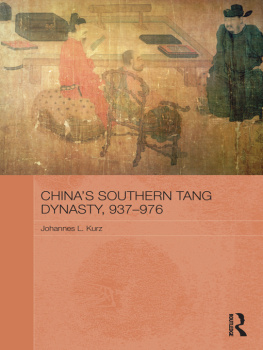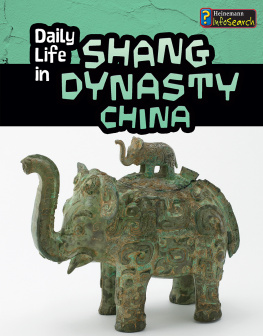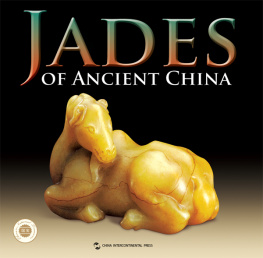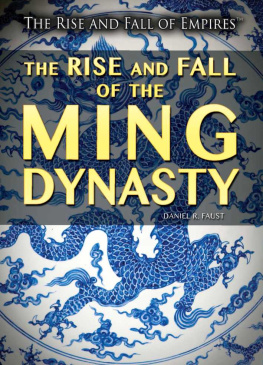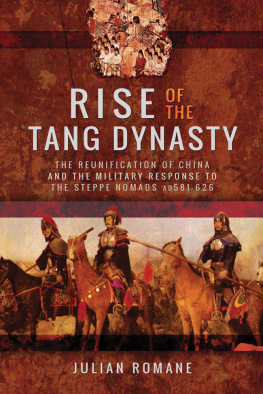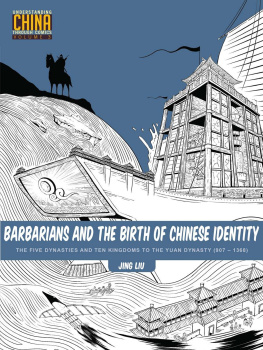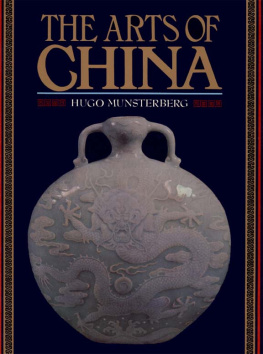Chinas Northern Wei Dynasty, 386535
The Northern Wei was a dynasty which originated outside China and ruled northern China when the south of China was ruled by a series of dynasties which originated inside China.
Both during the time that the Northern Wei dynasty was in power and over many centuries subsequently, the legitimacy of the Northern Wei dynasty has been questioned. This book outlines the history of the Northern Wei dynasty, including its origins and the history of its southern rivals; considers the practices adopted by both the Northern Wei dynasty and its rivals to establish legitimacy; and examines the debates which preoccupied Chinese scholars subsequently.
The book casts light on traditional ideas about legitimate rule in China, ideas which have enduring relevance as tradition continues to be very significant in contemporary China.
Puning Liu is the associate professor of the history department, Jinan University, Guangzhou, China.
Asian States and Empires
Edited by Peter Lorge, Vanderbilt University
The importance of Asia will continue to grow in the twenty-first century, but remarkably little is available in English on the history of the polities that constitute this critical area. Most current work on Asia is hindered by the extremely limited state of knowledge of the Asian past in general, and the history of Asian states and empires in particular. Asian States and Empires is a book series that will provide detailed accounts of the history of states and empires across Asia from earliest times until the present. It aims to explain and describe the formation, maintenance and collapse of Asian states and empires, and the means by which this was accomplished, making available the history of more than half the worlds population at a level of detail comparable to the history of Western polities. In so doing, it will demonstrate that Asian peoples and civilizations had their own histories apart from the West, and provide the basis for understanding contemporary Asia in terms of its actual histories, rather than broad generalizations informed by Western categories of knowledge.
17. The Collapse of Chinas Later Han Dynasty, 25200 CE
The Northwest Borderlands and the Edge of Empire
Wicky W. K. Tse
18. China, Korea & Japan at War, 15921598
Eyewitness Accounts
J. Marshall Craig
19. Chinas Northern Wei Dynasty, 386535
The Struggle for Legitimacy
Puning Liu
For a full list of available titles please visit: https://www.routledge.com/Asian-States-and-Empires/book-series/SE900
First published 2021
by Routledge
2 Park Square, Milton Park, Abingdon, Oxon, OX14 4RN
and by Routledge
52 Vanderbilt Avenue, New York, NY 10017
Routledge is an imprint of the Taylor & Francis Group, an informa business
2021 Puning Liu
The right of Puning Liu to be identified as author of this work has been asserted by him in accordance with sections 77 and 78 of the Copyright, Designs and Patents Act 1988.
All rights reserved. No part of this book may be reprinted or reproduced or utilised in any form or by any electronic, mechanical, or other means, now known or hereafter invented, including photocopying and recording, or in any information storage or retrieval system, without permission in writing from the publishers.
Trademark notice: Product or corporate names may be trademarks or registered trademarks, and are used only for identification and explanation without intent to infringe.
British Library Cataloguing-in-Publication Data
A catalogue record for this book is available from the British Library
Library of Congress Cataloging-in-Publication Data
A catalog record has been requested for this book
ISBN: 978-0-367-34744-4 (hbk)
ISBN: 978-1-003-12433-7 (ebk)
Typeset in Times New Roman
by codeMantra
Seven years ago, when I started studying the topic of the Northern Wei dynastys legitimacy at LIAS (The Leiden University Institute for Area Studies), I never imagined it would turn out to be a journey as tough or as joyful as it has been. To talk and debate with various politicians and historians about Chinas history is a challenging task. Luckily, a great number of people provided their invaluable supports, which directly contributed to this book.
It is hard to adequately express my gratitude to my supervisors, including Dr. Paul van Els, who guided me into the groves of the academe and continuously offered me kind encouragement. I owe a debt of gratitude to my other supervisors, Prof. Franke Pieke and Prof. Hilde De Weerdt, both of whom meticulously read this manuscript. Piekes comments on the aim and structure of my research greatly helped me improve this work; De Weerdt is a paragon of erudition who taught me to practice rigorous scholarship. I also thank Prof. Ding-Xiang Warner, who gave me crucial feedback on the thoughts of the Sui scholar Wang Tong. The committee members of my PhD defense, Prof. B. J. ter Haar, Prof. A. T. Gerritsen, Prof. C. Schwermannand, and Dr. F. Lin, all provided generous and insightful suggestions to me, many of which are embedded in this book.
The study of the Northern Wei dynastys legitimacy did not end after I got my PhD. I owe a great debt to those anonymous reviewers of Archiv Orienatalni and Asian History, who gave me invaluable feedback on my study on the dynastys legitimization and the Song scholars views of it. I am also grateful to the anonymous academic adviser from Routledge for his/her kind and worthy suggestions on an earlier version of this book, which ranged from the meaning of Tuoba to the inner Asian traditions of the Northern Wei dynasty. It is a really joyful moment when you receive so many great suggestions from such kind and knowledgeable advisers. I would also like to thank the editor Peter Sowden, who contributed a lot to this book. In addition, my colleges at the History Department of Jinan University gave me their warm encouragement. Also, the publishing of this book is supported by the Project of The Compiling of the History of Chinese Political Philosophy, which is funded by Renmin University, China (Project number is 18XLNG04). Finally, I want to express my deepest gratitude to my lovely parents, sister, and my wife. This book would have been impossible without their great support.
In the end, I thank you, my reader. It is a great joy to see that you share with me an interest in the issue of the Northern Wei dynastys legitimacy. I hope you will find as much happiness in reading this book as I experienced in writing it. Omnes homines natura scire desiderant.
JSJinshuLSLiangshuNQSNanqishuSGZSanguozhiSSSongshuWSWeishuZZTJZizhi tongjian
According to political scientist Seymour Martin Lipset, legitimacy in the political context refers to the capacity of the system to engender and maintain the belief that the existing political institutions are the most appropriate ones for the society.
As any political power requires legitimacy to maintain its rule, this naturally applies to periods during which the geopolitical area we now know as China was governed by Han Chinese ruling houses.contest for legitimacy between the Northern Wei and the Southern Dynasties became a topic of heated debate among a great number of Chinese scholars, who proffered diverse views on the legitimacy of specific dynasties, leading to a variety of theories on political legitimacy.


